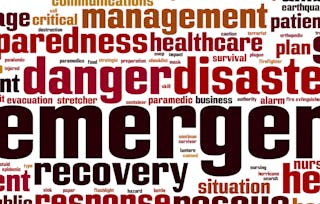Disaster Risk Reduction and humanitarian aid in conflict settings
This MOOC teaches you to develop accountable, high-quality and ethical responses to disaster in conflict-affected areas. The E-course is meant primarily for practitioners, but also open to students or otherwise interested people. It stimulates participants to think about humanitarian aid, DRR and disaster response in contexts where conflict is ongoing, lingering, or has characterized the setting in recent times, as well as about the hard choices and dilemmas faced by humanitarian actors in conflict settings. Moreover, you will learn to distinguish the different challenges and effective, positive examples of aid in three types of conflict settings. Through videos, interviews, guest lectures and realistic case-studio, learning becomes both relevant and fun; everything you learn will be applicable for practice in the field. Curious? Check out our trailer in the first module of the MOOC below.















